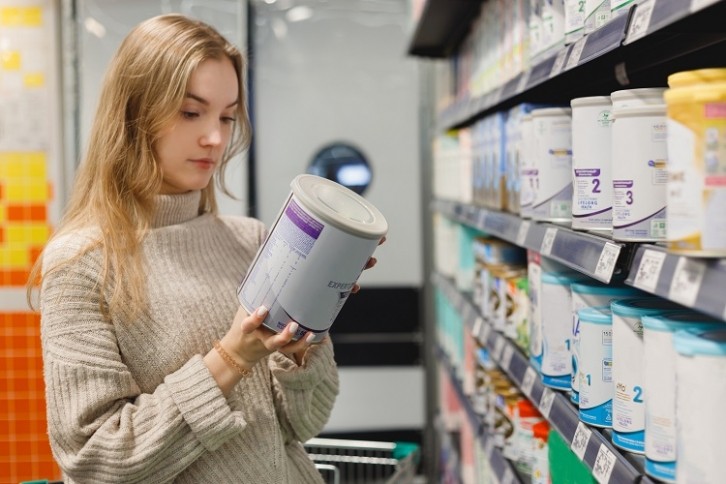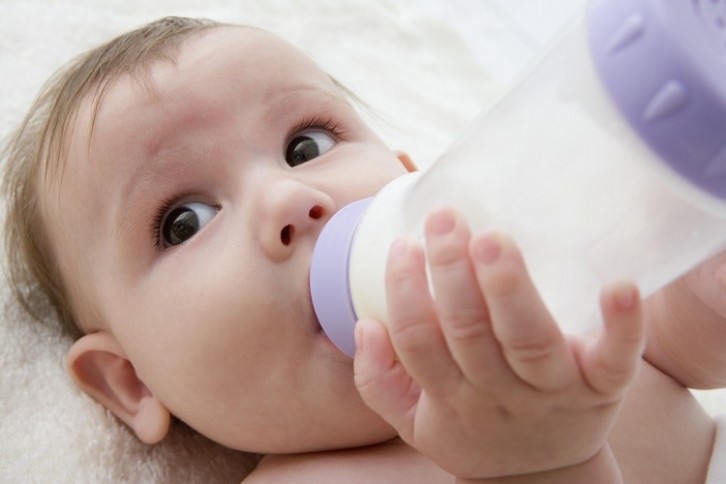French entrepreneurs Eugénie Pezé-Heidsieck and Eden Banon need higher toddler components choices for infants to enhance the well being and wellbeing of mom and little one.
As an alternative of sticking with the established order of cow’s milk-based components, the duo is popping to cell tradition to breed human milk from mammary cells.
Overcoming breastfeeding challenges
New moms usually really feel stress to breastfeed their infants. In keeping with recent analysis revealed in Psychiatry Analysis, this stress is predominantly felt from healthcare suppliers and the media.
Being each of their early 30s, co-founders of French start-up Nūmi Pezé-Heidsieck and Banon, have noticed this stress and stigma negatively impacting family and friends. “Sisters, cousins, and pals have had a whole lot of challenges breastfeeding their infants, or have determined to not breastfeed and felt a whole lot of guilt,” Banon defined.
Added problems happen when infants are discovered to be allergic or illiberal to toddler components, the overwhelming majority of which is made out of bovine milk, and consequently is ‘insufficient’, we had been informed.
“The complexity of breast milk solutions all of the wants for infants’ improvement, starting from mind and retina improvement to satiety regulators and boosting the immune system. It’s composed of over 1,500 constituents and making an attempt to copy that coming from one other species is suboptimal.”
For the co-founders, a possible answer lies in cell tradition. Pezé-Heidsieck and Banon established Nūmi (an abbreviation of ‘new milk’) in 2022.
Making breast milk in a lab
Cell tradition know-how includes rising cells underneath managed situations, normally exterior of their pure surroundings. For Pezé-Heidsieck and Banon, this implies recreating the mammary gland surroundings – the organ chargeable for milk synthesis – for human cells to develop and produce stated milk.
“We use a number of sources of efficient cell strains and domesticate them in managed situations,” Banon informed FoodNavigator. The beginning-up then isolates chosen cells, cultivates them in managed situations, and feeds them vitamins to develop, duplicate, and produce human milk. This ultimate step is purification, earlier than being prepared for human consumption.
“Cell tradition know-how means that you can replicate the entire phenomenon of lactation in vivo, in vitro utilizing what nature does finest – however now with the assistance of science,” stated the co-founder.

Nūmi is but to file for mental property safety, so is preserving technical particulars underneath wraps. What the co-founder did say is that when it comes to vitamin, the start-up intends to be the ‘subsequent smartest thing’ to breast milk. “We are going to attempt to come as shut as potential, when it comes to breast milk constituents.”
In saying that, the start-up is adamant that breast stays the best choice for infants. “Breast is finest and all the time will likely be. We don’t intend to exchange breastfeeding,” careworn Banon. “We simply intend to be the following smartest thing for ladies who don’t wish to, or can’t breastfeed, in addition to for households who don’t have entry to breastfeeding choices.”
“Breastfeeding will all the time be the easiest way to feed your child if you wish to achieve this. We’re simply on the market for the ladies who’ve issue doing so.”
No, it’s not precision fermentation
Nūmi is just not the primary start-up working to disrupt the toddler components market with artificial biology, which isn’t unsurprising given the potential market alternative: this 12 months the worldwide toddler vitamin market is anticipated to achieve $88.3bn (€80.9bn) and attain upwards of $125bn by 2028, in accordance with Mordor Intelligence.
US-based Pure Mammary Components is one other biotech utilizing cell tradition to develop human milk. In Singapore, TurtleTree is making bovine lactoferrin (which is usually a prohibitively costly ingredient in toddler components) utilizing precision fermentation know-how.
Banon careworn that Nūmi’s method is just not based mostly on precision fermentation, whereby microorganisms are programmed to provide advanced natural molecules resembling protein. Each applied sciences have positives and negatives, the co-founder defined.
“Precision fermentation might be terribly helpful and price efficient to provide one constituent, which might already be an enormous enchancment should you’re upgrading present toddler components merchandise.
“What we’re making an attempt to do right here at Nūmi is to provide as a lot of these 1,500 constituents as potential, so as to convey a very new various to the desk.”

Rising competitors within the human milk-focused artificial biology is an effective signal, in accordance with the co-founder, who stated she is worked up to see others within the discipline. “Principally as a result of it’s affirmation that what we do is of curiosity, each in time period of the market and when it comes to science. And in addition simply because we strongly really feel that it is a downside that wants options.”
Potential hurdles in a extremely regulated market
Like all innovators working in cell tradition, scaling is a serious problem. This comes within the type of monetary and technical hurdles. What works at lab scale wants adjusting to work at an even bigger scale, Banon defined. “That’s why we’re making an attempt to construct out our processes with scale in thoughts, from day-zero.”
Serving to on the monetary facet is the current closing of a €3m pre-seed spherical funded by Heartcore Capital, HCVC and Financière Saint-James.
One other apparent problem for cell tradition pioneers, and significantly these working in toddler vitamin, is regulation. Cell-based milk is taken into account a novel meals, and in Europe would wish to obtain pre-market approval from regulatory businesses. On the similar time, toddler vitamin is without doubt one of the most strictly regulated classes.
Nūmi is taking regulation ‘very critically’, careworn Banon. Though nonetheless within the early levels of improvement, the co-founders are already working with regulatory specialists inside the discipline of novel meals.
The EU is lagging behind nations like Singapore and US, the place precision fermentation-derived dairy and cell-based meat have handed official meals security exams. For that reason, it’s anticipated Nūmi will initially launch into the US. “The US…is extra welcoming of improvements on this discipline and have arrange a extra outlined regulatory panorama for improvements like ours, whereas Europe continues to be evolving,” we had been informed.
“We very a lot hope that Europe will comply with and that we’ll be capable to convey our merchandise to European and French households fairly quickly.”


